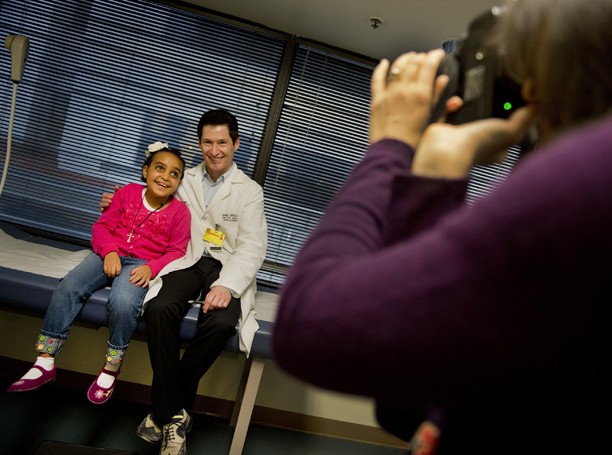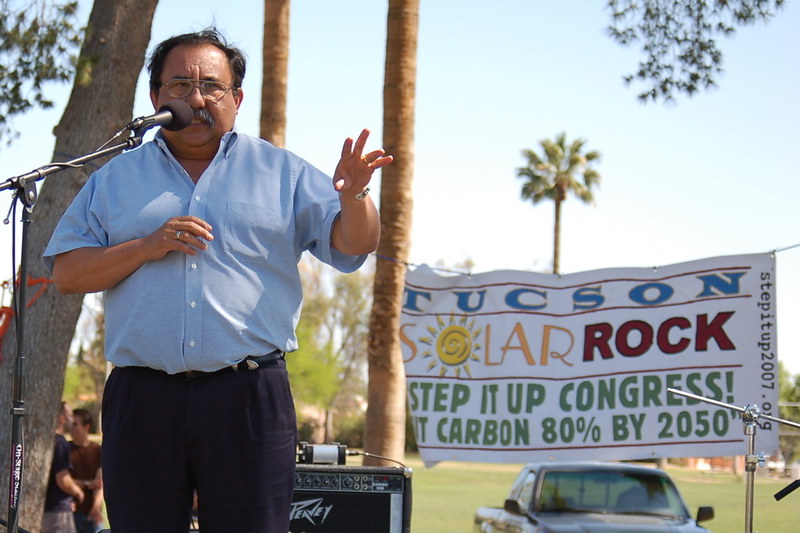SACRAMENTO, Calif. — Kalkidan Wondemu Sirbaro, a 7-year-old girl from Gurage, a village in southern Ethiopia, had a checkup at the Sutter Medical Center neuroscience facility in downtown Sacramento last week.
But according to the health professionals involved, it is miraculous Kalkidan made it to Sacramento to receive treatment for her craniopharyngioma, Kalkidan’s form of cancer discovered in the fall.
“Things like this do not happen,” said Dr. Sarah Jones, the Sutter family doctor who orchestrated Kalkidan’s treatment. “There’s something special about this child. Why would opportunities like this open up for her?”
The little girl giggled as the elevator whisked her to the fifth floor. But she dragged her feet on the walk to Dr. Samuel Ciricillo’s office, fearing needles or cold tools.
A nurse took her weight, blood pressure, temperature. Ciricillo examined scans of Kalkidan’s brain from before and after the operation that removed a cancerous tumor.
Dressed in a pink sweater, pink shoes and her favorite white bow, Kalkidan fidgeted anxiously during the checkup, just like the other kids Ciricilllo treats for cancer.
Speaking through a translator, Kalkidan said she had been suffering headaches and noticed she was going blind when she could no longer see the bonfires during Meskel, the Christian festival in late September.
Kalkidan’s parents heard about volunteers traveling with Project Mercy, an Indiana nonprofit that sends aid to Ethiopia. They took her 90 miles from their village to the capital city, Addis Ababa, where a scan discovered her brain tumor.
Ethiopian doctors gave Kalkidan about two months to live, said Isabella Zuber, a San Francisco-area nurse who traveled with the Project Mercy team. The hospital in Addis Ababa had a 200-person waiting list, she said. In Ethiopia 77 of every 1,000 children die before age 5, according to the World Health Organization.
“They couldn’t do neurosurgery at that small hospital, but they could bring her story back to the States,” Jones said.
Jones said she emailed Ciricillo and he quickly agreed to donate his time. She said Sutter offered pre- and post-operative care and Kalkidan secured a passport and visa to travel to the United States.
“Within 30 hours I had the green light from all of Sutter that we will take care of this child,” Jones said.
The founder of Project Mercy accompanied Kalkidan on the flight from Ethiopia on Dec. 8, and Ciricillo performed surgery nine days later, Jones said. She left the emergency room the day after Christmas and stayed with Jones and Zuber, and members of the local Ethiopian community brought Kalkidan home-style cooking.
Wednesday was the first time the little girl had visited Ciricillo since the December brain operation. Kalkidan is still blind, but Ciricillo said she was healthy enough to return to Ethiopia. Kalkidan will not require radiation, but a challenge may be getting scans to track her recovery in Ethiopia, Ciricillo said.
“She was within a couple months of death,” he said. Craniopharyngioma is more common among children because it often exists at birth, Ciricillo said. “Things we see abroad tend to be
exaggerations of things we see here.”
Jones said next week Kalkidan will speak with her family on the phone for the first time since leaving Ethiopia.
Kalkidan, whose name in her native Amharic means “covenant,” said her mother cried when she left for America, and Jones said Kalkidan talks of missing her family.
“I will tell them I don’t have a headache anymore,” Kalkidan said.
“I am surrounded by nice people who take care of me and who give me a shower every day.”
Jones said Kalkidan is expected to return to Ethiopia in the next couple of months.








